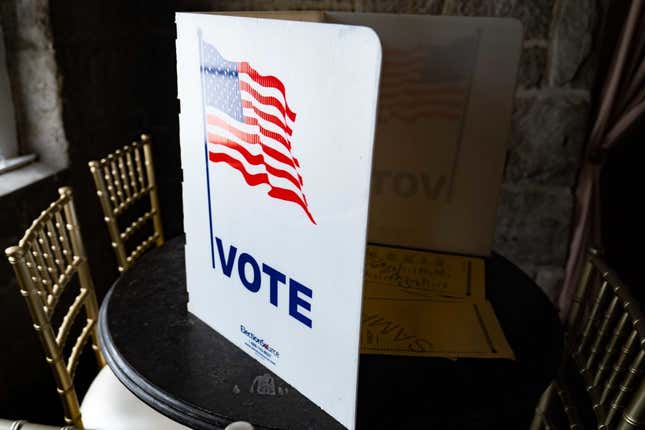
Today is the first day of early voting in Georgia, where voters will start to weigh in on close governor and Senate races. However, Republicans in the state have been determined to suppress voter eligibility, using a provision in the new set of election laws signed by Governor Brian Kemp, according to the Atlanta-Journal Constitution.
Senate Bill 67, which passed after the 2020 Presidental election, allows any resident to challenge the qualifications of an unlimited number of voters within their county. Right before the presidential election, the right-wing group True the Vote compiled a list of 364,000 voters to challenge. However, the group didn’t submit evidence that these citizens were casting illegal votes. Heading into the midterm elections, Georgia has already seen almost 65,000 voting challenges this year alone.
Voter eligibility challenges can be made anytime, including on Election Day. The Republican argument is that these are necessary to prevent people who moved out of the state from voting in local elections. Remember that the 2018 gubernatorial election saw challenger Stacey Abrams lose to Kemp by a 50,000 vote margin. The same can be said in the Senate runoff races where Democratic Sens. Raphael Warnock and John Ossoff won by skinny margins. These challenges can change the makeup of the election even if only some of these challenges are approved.
From the Atlanta-Journal Constitution:
County election officials have so far rejected most voter eligibility challenges, including 22,000 in Gwinnett County, 15,000 in Forsyth and 1,350 in Cobb County this month. Across Georgia, about 65,000 voters challenges have been filed this year, with over 3,000 of them upheld, according to a count by the voting rights organization Fair Fight Action.
If a challenge is upheld, the voters’ registrations are either canceled, or they’re required to cast a ballot in “challenged” status that a county election board would review before results are certified. Unfortunately, the voter registration deadline in Georgia has passed. So, anybody who had their registration canceled due to this will not be able to vote in the midterms.
Fair Fight Action found that 63% of Cobb challenges filed late last month targeted people of color “whose registrations were missing apartment numbers or listed Kennesaw State University addresses.” The Cobb board rejected the voter registration challenges due to a lack of probable cause.
Executive director for the Georgia Coalition for the Peoples’ Agenda Helen Butler feels this provision in the law was built to be abused.
“They’re so high on the idea that there’s fraud that they’re creating problems rather than solving problems. Our Legislature should have foreseen this,” said Helen Butler, executive director for the Georgia Coalition for the People’s Agenda, a civil rights organization. “The process is already in place to handle this and to catch fraud.”

